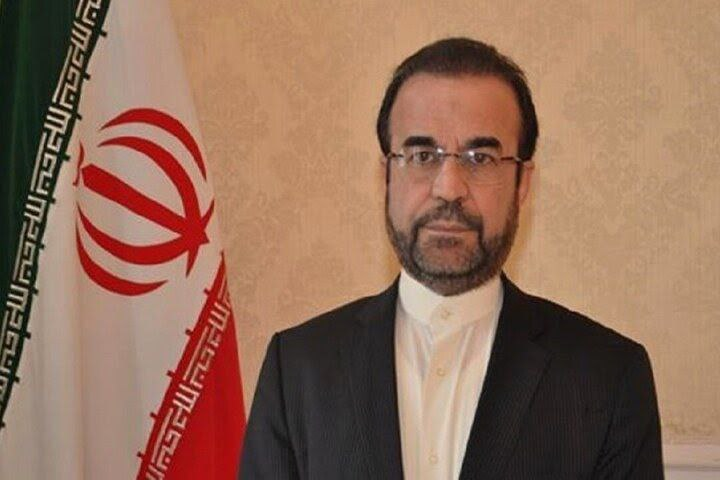Iran’s envoy to IAEA: E3 actions have severely undermined constructive dialogue
The ambassador and permanent representative of the Islamic Republic of Iran to the International Atomic Energy Agency says the recent actions of the United Kingdom France and Germany in clear violation of Resolution 2231 and the JCPOA have severely constrained the space for constructive dialogue.

The ambassador and permanent representative of the Islamic Republic of Iran to the International Atomic Energy Agency says the recent actions of the United Kingdom, France, and Germany, in clear violation of Resolution 2231 and the JCPOA, have severely constrained the space for constructive dialogue.
Reza Najafi was speaking at the IAEA Board of Governors meeting on September 10, 2025 under the agenda item concerning the implementation of Resolution 2231.
He noted that since the start of the JCPOA’s implementation in 2016, the US and the three European countries have not only failed to honor their obligations, but through repeated actions and negligence, have obstructed the normalization of Iran’s trade and economic relations.
Referring to consecutive IAEA reports, Najafi said Iran has granted the highest level of cooperation and access to the Agency, a fact explicitly confirmed in 15 successive reports by the Director General as well as in the most recent report.
He added that the suspension of verification and monitoring activities in Iran was not the result of Iranian actions, but rather due to unlawful attacks by the US and the Israeli regime against safeguarded nuclear facilities, which compelled the Agency, for security considerations, to withdraw its inspectors.
Iran's envoy to the IAEA underlined that the root cause of the current JCPOA crisis lies in the unilateral U.S. withdrawal and the repeated breaches by the three European states. He reminded that these countries are attempting to distort reality by abusing the so-called “snapback” mechanism. Najafi noted that any action by the three European states under the dispute settlement mechanism of Resolution 2231 is legally invalid, saying the resolution must terminate on schedule on 18 October 2025.
Najafi also criticized the European Union’s role as JCPOA Joint Commission coordinator, arguing that its conduct contradicts the duty of impartiality, pointing to statements by EU officials and the E3 which openly question the principles and spirit of the JCPOA. Such positions, he added, not only constitute serious violations of commitments but also strip these countries of credibility as genuine participants in the JCPOA.
The Iranian evoy to the IAEA said the behavior and rhetoric of European leaders show that their priority is not diplomacy but pressure and threats.
Najafi added that the Islamic Republic of Iran remains ready for constructive engagement, underlining that the only path to agreement is through providing objective, verifiable, and strong guarantees for the full and effective lifting of sanctions.
He stressed that the purpose of any agreement must be the normalization of Iran’s trade, financial, and economic relations, the safeguarding of its nuclear facilities and scientists, and the recognition of Iran’s sovereign right to enrich uranium on its own soil.